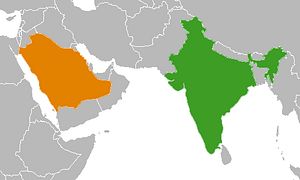With general elections around the corner neither of the prime ministerial candidates are articulating their stand on crucial foreign policy issues, with the exception of the occasional mention of Pakistan, China and Bangladesh by BJP Candidate Narendra Modi. Similarly, there has been little media attention on key developments in the foreign policy domain. This is in stark contrast to earlier elections, where prominent leaders from both political parties articulated their foreign policy. In previous elections, especially in 2004 and 2009, foreign policy issues were at the forefront
With the media focused on the May election, visits by foreign dignitaries have passed with little remark. Yet January brought two important visits by Asian leaders: first by Korean President Park Geun-hye and then soon after by Japanese Prime Minister Shinzo Abe, who was also guest at India’s Republic Day Celebrations. These visits saw discussion of a wide range of issues, economic and strategic, with the intention of strengthening India’s bilateral ties with both Japan and South Korea. Both visits helped bolster India’s Look East Policy, which was initiated more than two decades ago.
February also brought some high-level delegations to India, this time from Saudi Arabia and Iran. Crown Prince Salman bin Abdulaziz Al Saud was in New Delhi for three days from February 26 to 28, while Iranian Foreign Minister Mohammad Javad Zarif also visited the capital on the last two days of the month.
Both Saudi Arabia and Iran are extremely important to New Delhi. Saudi Arabia is home to a large Indian population and is an important trade partner. Trade between both countries was estimated at $43 billion for 2012-2013, and was $32 billion for the period April-November period of 2013 alone. Crude oil imports by India are a major component of this trade. Yet while India is the fifth largest market for Saudi exports, the latter is also India’s sixth largest export market.
The crown prince met with Indian President Pranab Mukherjee and Prime Minister Manmohan Singh on February 27. A number of issues were discussed, including trade, infrastructure cooperation and defense. Meanwhile, four memorandums were signed at an India-Saudi Business Forum. The two countries are also seeking to step up cooperation in the domain of infrastructure, a particular challenge for India, and have agreed to create a billion dollar joint infrastructure investment fund.
India’s ties with Saudi Arabia are no longer limited by India’s tensions with Pakistan. This enabled the two countries to sign a defense pact during the crown prince’s visit. The agreement seeks to enhance cooperation in areas such as information sharing as well as military training and education.
The visit by Iranian Foreign Minister Mohammad Javad Zarif was also crucial for India, since the thaw between the West and Iran now gives New Delhi the opportunity to again pursue economic ties and explore certain projects that had been placed on the backburner. India is heavily dependent on Iran for energy, with the latter already India’s second largest supplier of crude oil.
India and Iran have the chance to explore synergies and projects in the context of Afghanistan. An example is the Chabahar port, which would provide India with access to Central Asia and Afghanistan. While the Iranian foreign minister did point out during his Delhi visit that Tehran still has differences with the major powers, the P5+1 agreement signed in November has given Iran and partners such as India a chance to rekindle ties in the economic and strategic realms.
How will a new government—possibly a Modi-led BJP one—deal with India and Saudi Arabia? While Modi may not find it difficult to accelerate economic cooperation and trade, he will have to keep a close watch on the turbulent geopolitics of the Middle East. India can no longer afford to ignore Iran or Saudi Arabia, allow ties to be driven by a fixation on Pakistan, or view relations through the hackneyed Shia-Sunni lens. With the Saudi government flagging radicalism as a major threat, Saudi Arabia may emerge as an important partner for India. But while the Middle East offers real opportunities for India, managing the relationship will require the next government in New Delhi to exhibit considerable dexterity.
Tridivesh Singh Maini is associated with The Jindal School of International Affairs, Sonepat.

































